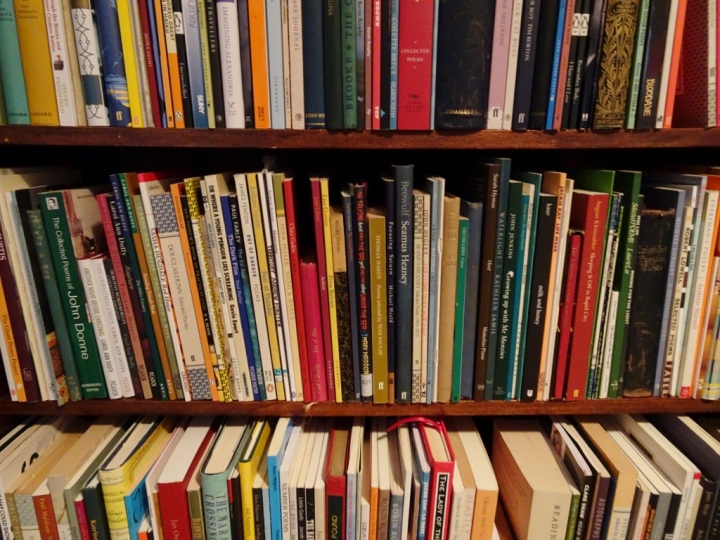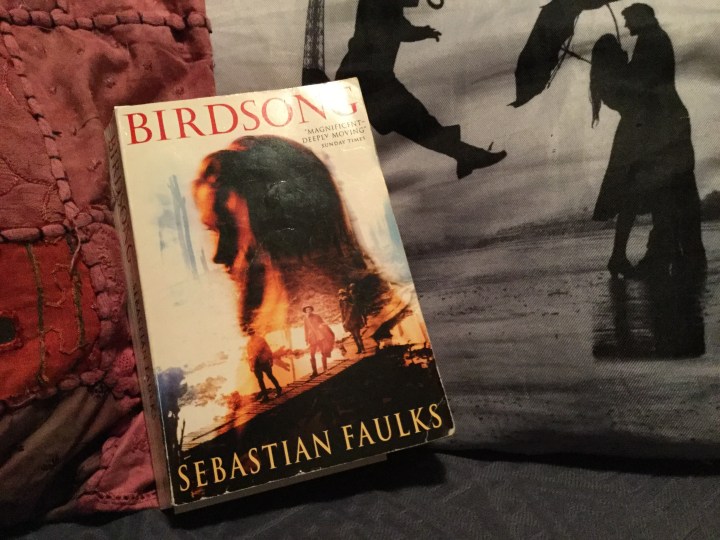Five minutes ago it was the end of May. Now it’s nearly the end of July.
When I think about it, it isn’t really suprising that the time’s gone so quickly. After all, it’s been a pretty busy couple of months…

Poetry:
BREAKING THE SURFACE: The main thing in my poetry life is that I’ve launched my pamphlet! Yes, that’s right: I am now the author of a slim volume of poetry which actually has my name on the cover and my poems on the pages in between.
Breaking the Surface officially came out at the end of June, but I sort of jumped the gun on that one, and had the launch on 6th June. Well, I say ‘the launch’ – what I actually mean is the first launch, because I had two.
The first was at Penrith Old Fire Station. I read poems from the pamphlet, alongside two members of Dove Cottage Young Poets, who also performed, and who pretty much stole the show: Hannah Hodgson & Emily Asquith. I say ‘pretty much’ because there was also an open mic, and – more importantly – a buffet. Always a good thing at a poetry event! (Or any event, for that matter…)
The second was in Crosthwaite Village Hall. This was a joint launch with Pauline Yarwood, whose pamphlet, Image Junkie, is published by Wayleave Press.
PRIZES: I’ve also had a lucky couple of months (following on from another lucky couple of month before that). My poem, ‘The Selkie’s Child’, was chosen by Hannah Lowe to win the Ware Poetry Prize. A couple of weeks later, another poem (‘Offcomer’) was shortlisted for the Frogmore Papers Poetry Prize.
Fingers crossed the lucky streak keeps going!
ALSO: As well as prizes & publications, there’ve been quite a few performances. (Alliteration – see what I did there?) Some of these were my own (I had a lovely evening as the guest reader at an open mic night at Cakes & Ale in Carlisle, and a trip to Derby to read for Derby Poetry Group).
Some of the performances, though, were other people’s. In particular, July saw the culmination of a schools project I’ve been working on with New Writing North. This year, I’ve been working with three schools across Cumbria (Barrow Island Primary School, St Bede’s Primary School & Monkwray Junior School), to write poems based on New Writing North’s children’s show, Hey Presto! – which toured libraries at the end of last year. The project culminated in the production of an anthology, called All the Things We Would Pull from a Magic Hat, and performances in Monkwray School and Barrow Library. Seeing the children’s pride in performing their poetry for an audience, and their excitement at having their names in a book, was the perfect end to the project.

Fiction:
The fiction has been largely in a ‘thought’ phase over the past few weeks. This isn’t a cop-out of saying that I haven’t been working on it. I have. But so much of a writer’s work goes on in the mind, and that’s what’s been happening with the novel.
In June, I went down to London for my first WriteNow mentoring meeting with my editor at Penguin Random House. It was such a rewarding meeting: to have somebody look at the first draft of the novel in its entirety and really examine what was working and what still needed attention. There was a lot of very encouraging positive feedback. There were a couple of sections that I wasn’t sure about, which Tom (my editor) highighted as needing work, so it was good to have that confirmation.
Generally, it’s left me with a lot to mull over, ready to start reworking the existing draft in the next week or so.
Meanwhile, I’ve been working on…

Theatre:
The Inevitable Quiet of the Crash opens at Edinburgh Fringe in ijust a few days time! Which means the past 8 weeks have involved a lot of last-minute edits and adjustments as we work towards opening night.
Something fascinating happens when you give your words over to somebody else to work with. Suddenly, the words cease to be yours. Someone else takes them, rolls them around their mouth and delivers them back to the world in a voice that isn’t yours. It’s the closest I’ve been to becoming Frankenstein, literally bringing another human to life.
But of course, working with other people inevitables means changing things. One of the joys of working with actors is that they inhabit the character fully. Of course, this is something I try to do during the writing process, but I’m trying to juggle multiple characters, multiple storylines, and an overarching plot. Whereas for the actor, they focus on the one character and learn to inhabit their skin. They walk in the character’s shoes. They look through the character’s eyes – which means that they spot things that I don’t.
Hence rewrites and revisions.
The result? Hopefully a more rounded and complete show, with truer, deeper characters. Hopefully a successful run at the Fringe!
Find out more about the show and how to get tickets here.
Or read my interview with Gareth Vile, talking about the show here.
*
So all in all, a pretty busy couple of months!
Oh yes, and I also went to Iceland with my friend & fellow writer Jess Rich. (The country, that is – not the frozen food shop.)

The months in books:
I haven’t actually read as much as I’d like to these past couple of months – probably because I’ve been so busy writing, travelling, and tying myself up in admin knots. But what I have read has been a good mixture of new works (or at least, new to me) and old favourites.
I’ve particularly enjoyed rereading the Harry Potter series. A few weeks ago, Harry Potter turned 20. So that evening, when I couldn’t sleep, I pulled my tatty, dogeared but very well-read Philosopher’s Stone from the shelf and immersed myself. What fascinated me most was how much more I noticed this time around. I’ve read these books several times; I thought I knew everything they had to offer. But this was the first time I’d read them since starting to write fiction of my own, and suddenly I’d become alive not just to the stories, but to the writing itself. One of the message’s in Alain de Botton’s The Art of Travel (which I also read recently) is that drawing an object helps you to observe and understand that object; it’s the same with writing. Now that I’ve tried to create my own story, I can observe and understand J K Rowling’s writing process in a completely different light.
- Confabulations, by John Berger
- Girl Meets Boy, by Ali Smith
- The Character of Rain, by Amelia Nothomb
- Harry Potter and the Philosopher’s Stone, by J K Rowling
- Harry Potter and the Chamber of Secrets, by J K Rowling
- Harry Potter and the Prisoner of Azkaban, by J K Rowling
- Harry Potter and the Goblet of Fire, by J K Rowling
- Harry Potter and the Order of the Phoenix, by J K Rowling
- Harry Potter and the Half-Blood Prince, by J K Rowling
- Harry Potter and the Deathly Hallows, by J K Rowling
- The Fishermen, by Chigozie Obioma
- The Art of Travel, by Alain de Botton
The months in pictures:
Save
Save

















































































































































